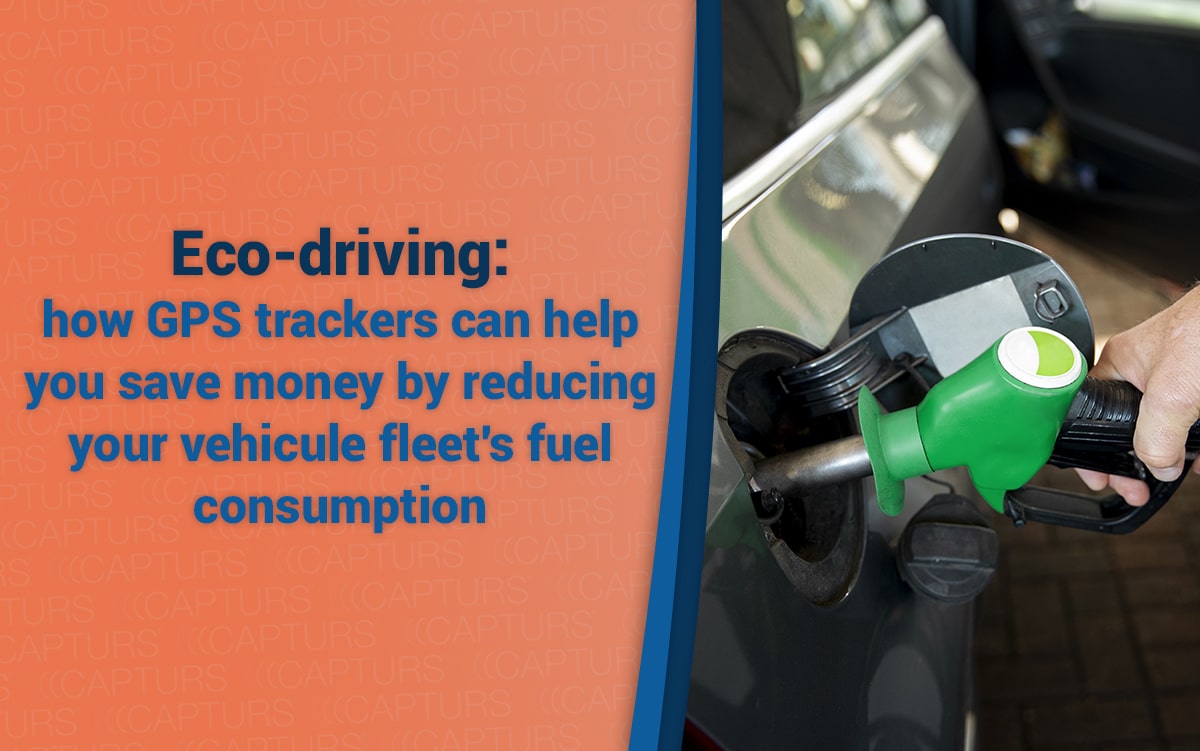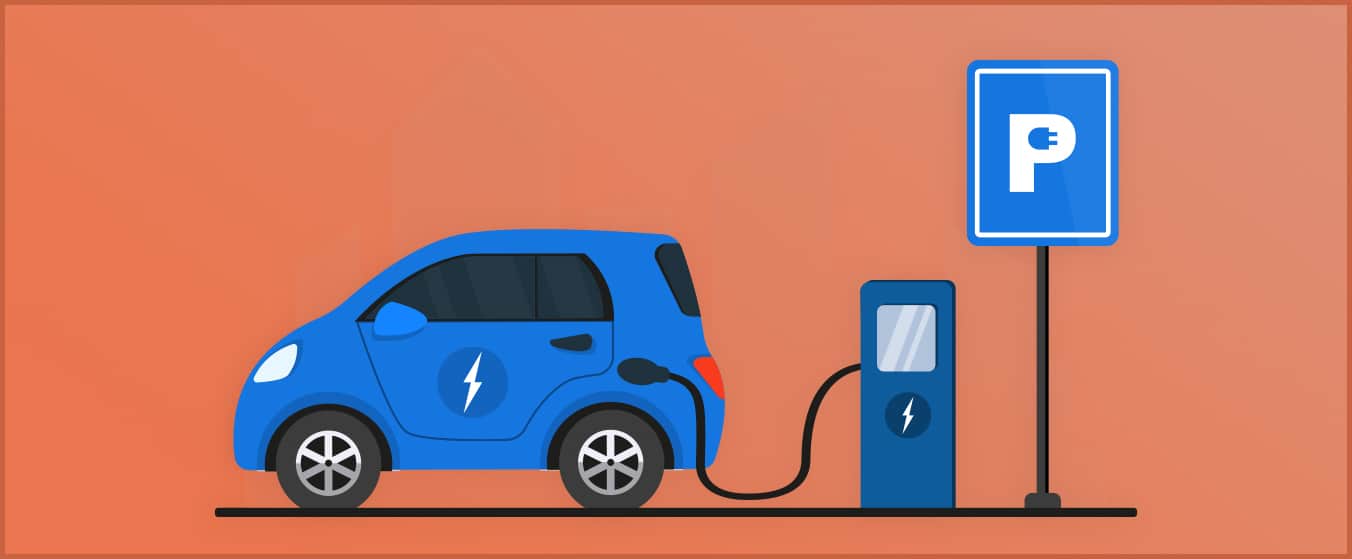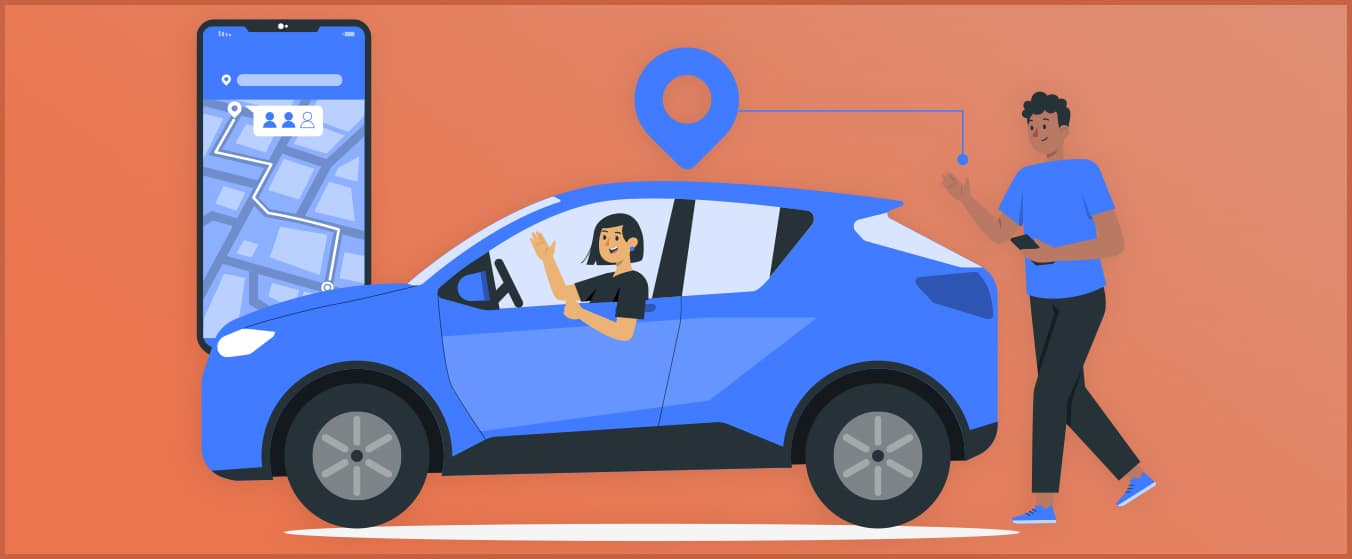Eco-driving: how GPS trackers can help you save money by reducing your vehicule fleet’s fuel consumption

Eco-driving has become increasingly important for companies looking to reduce their environmental impact while saving money. GPS trackers are a key tool for improving the efficiency of eco-driving in a fleet of vehicles. By using the location and driving data collected by GPS trackers, companies can optimize routes, reduce downtime and even monitor their drivers’ speed to reduce fuel consumption.
This reduction in fuel consumption translates into significant financial savings for companies, while reducing their carbon footprint. In this article, we will explore how GPS trackers can help companies save money by reducing the fuel consumption of their fleet through eco-driving.
What is eco-driving?
Eco-driving is a driving method that aims to reduce fuel consumption, greenhouse gas emissions and the risk of accidents, while improving road safety. It involves driving more smoothly, observing speed limits, maintaining proper tire pressure, planning trips, using more fuel-efficient vehicles, and following the rules of the road and traffic signs. By adopting eco-driving, drivers can reduce their vehicle operating costs, improve their road safety and help protect the environment.

Eco-driving techniques to save money
Eco-driving is an effective way to reduce fuel consumption and greenhouse gas emissions. By adopting a smoother driving style and avoiding hard acceleration, hard braking and speeding, you can significantly reduce the fuel consumption of your vehicle. In addition, dangerous driving should be avoided, controlled and regulated to save money.
By driving at a more constant speed, you can also improve the aerodynamics of your vehicle and reduce air resistance, which will reduce fuel consumption. It is also important to maintain proper tire pressure, as under-inflated tires can increase fuel consumption.
Eco-driving also involves planning your trips in advance to avoid traffic jams and congested roads, which can reduce downtime and unnecessary driving distances. It is also important to choose routes that allow for higher speeds and fewer frequent stops and starts.

Eco-driving can also involve the use of more fuel-efficient vehicles, such as hybrids or electric vehicles, which offer significant fuel savings over traditional combustion vehicles.
In short, eco-driving is an effective way to reduce your vehicle’s fuel consumption, greenhouse gas emissions and operating costs. By driving more smoothly, planning your trips in advance, and choosing more fuel-efficient vehicles, you can realize significant savings on your fuel costs.
GPS trackers to help eco-driving and reduce fuel consumption
GPS trackers can help improve eco-driving by providing accurate information on the most fuel-efficient routes. GPS trackers can use real-time data on traffic, congestion and speed limits to calculate routes that allow higher speeds and fewer frequent stops and starts.
Some GPS trackers in company cars available to employees can also provide real-time information on fuel consumption, speed and acceleration, allowing drivers to monitor their driving and adjust to improve eco-driving. For example, drivers can monitor their fuel consumption to identify when they are using more fuel and adapt by changing their driving.
Finally, GPS trackers can also allow companies to monitor driver performance and implement training programs to improve eco-driving. This allows companies to reduce vehicle operating costs and help protect the environment.

In summary, GPS trackers can help improve eco-driving by providing accurate information on the most efficient routes, allowing drivers to monitor their driving and helping companies implement training programs to improve eco-driving. GPS trackers can therefore help reduce vehicle operating costs and protect the environment.
